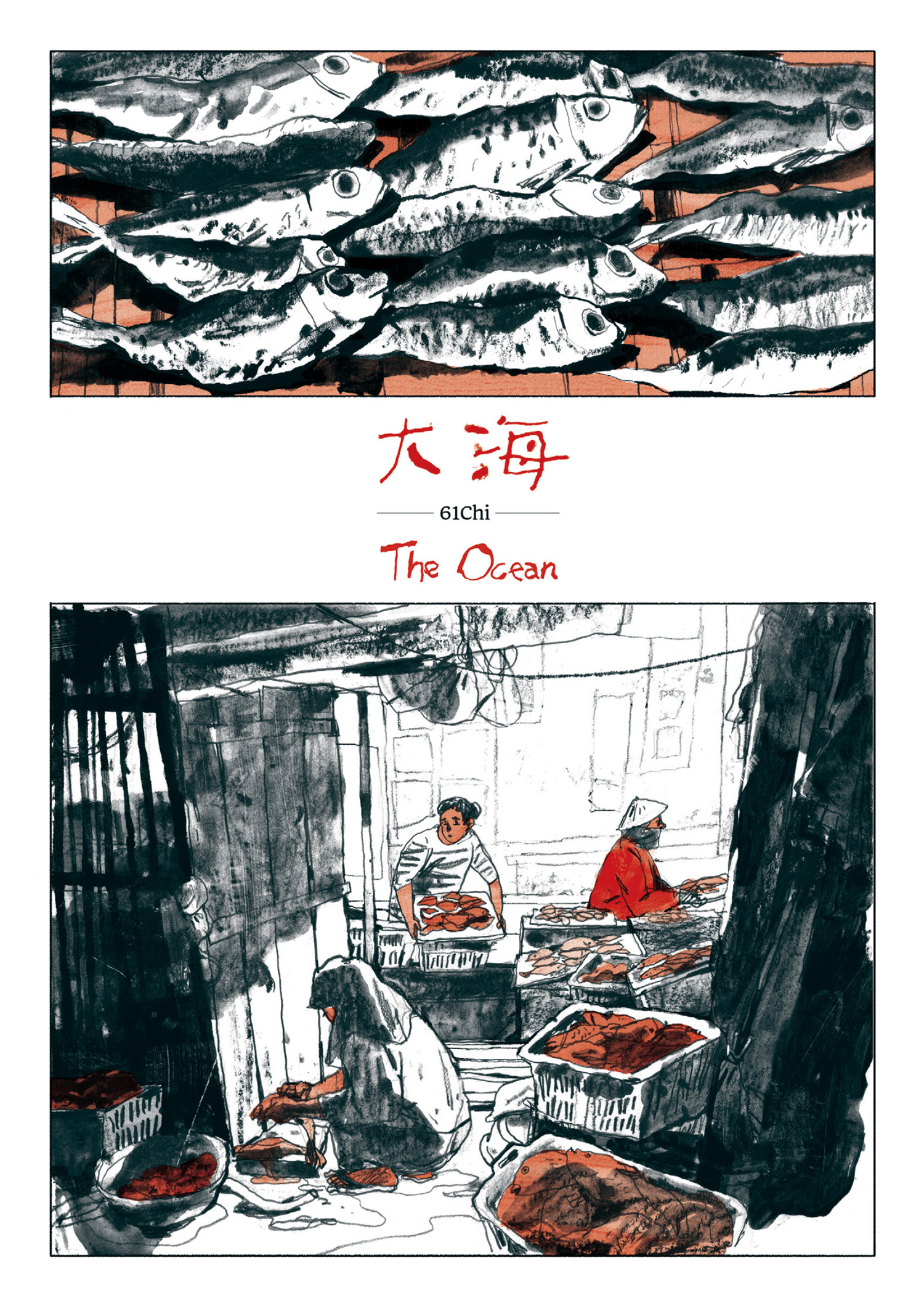



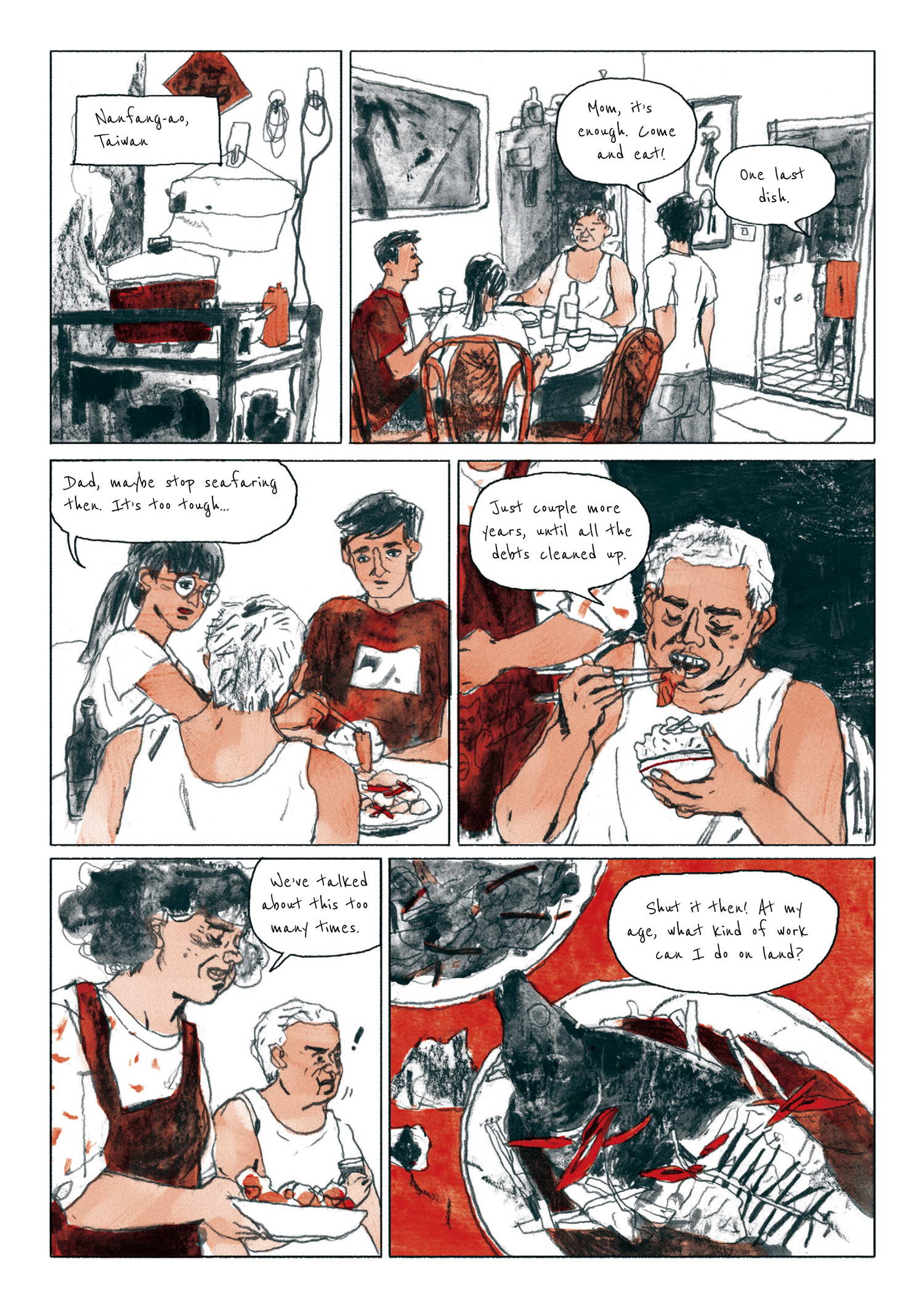
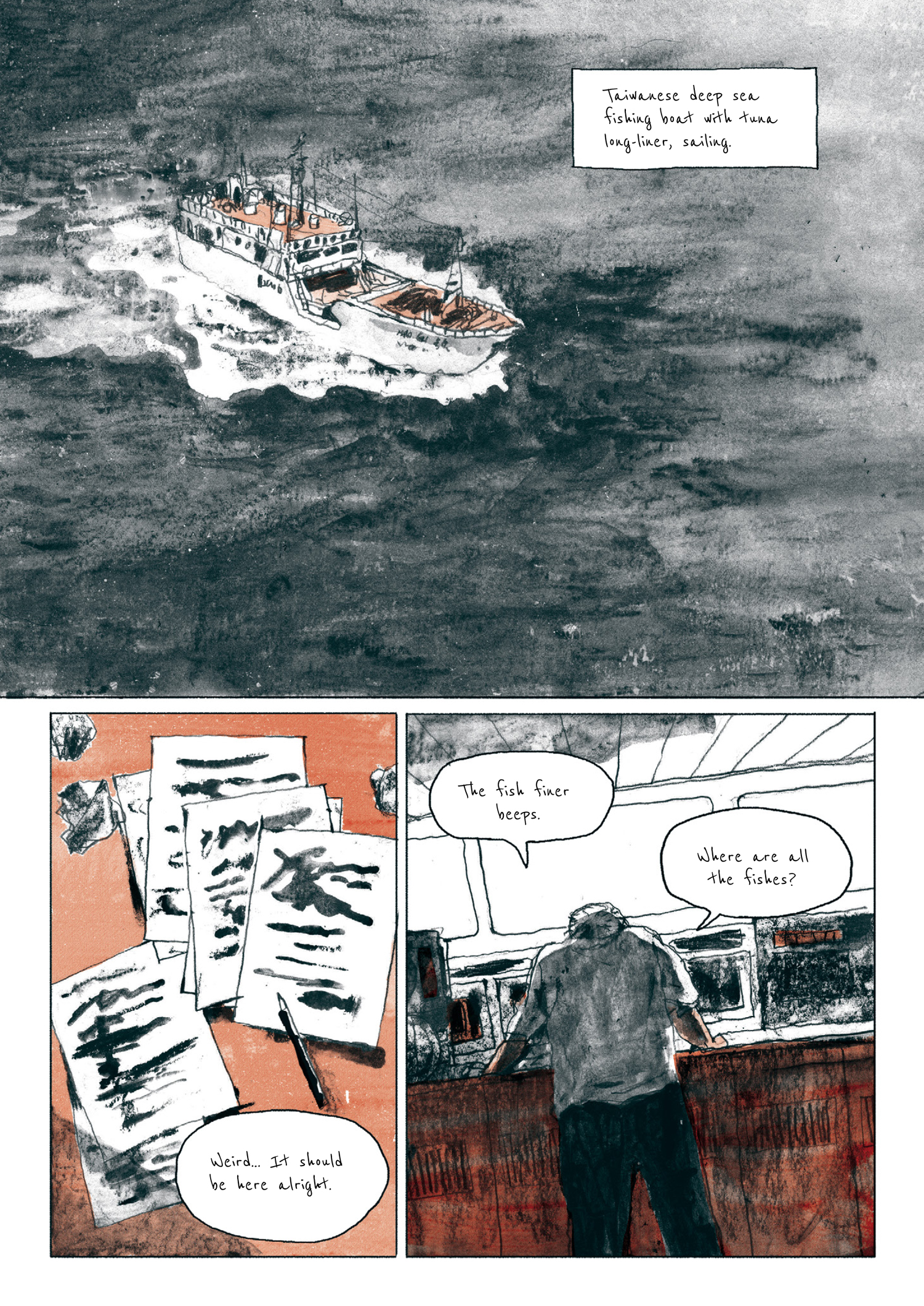
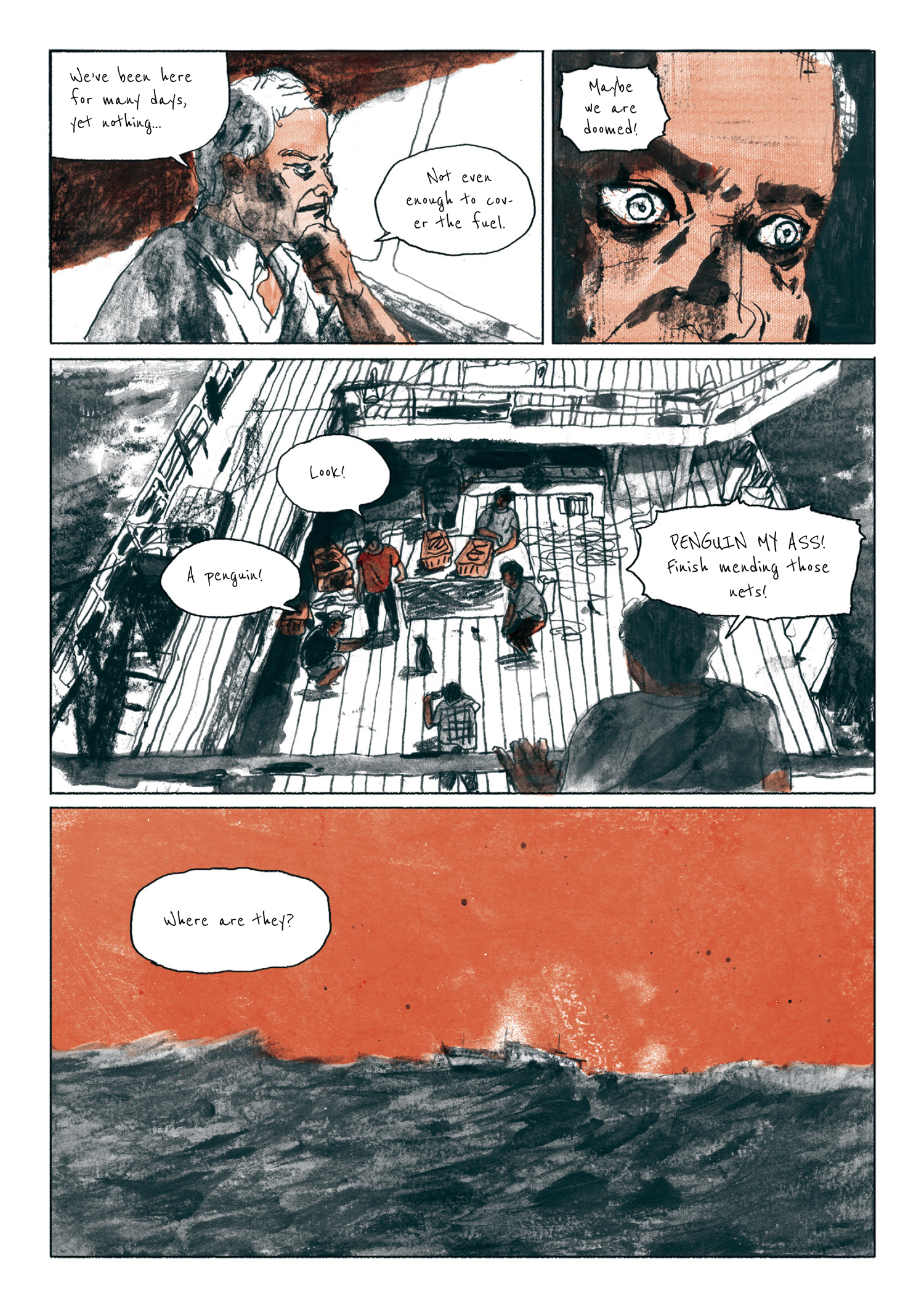
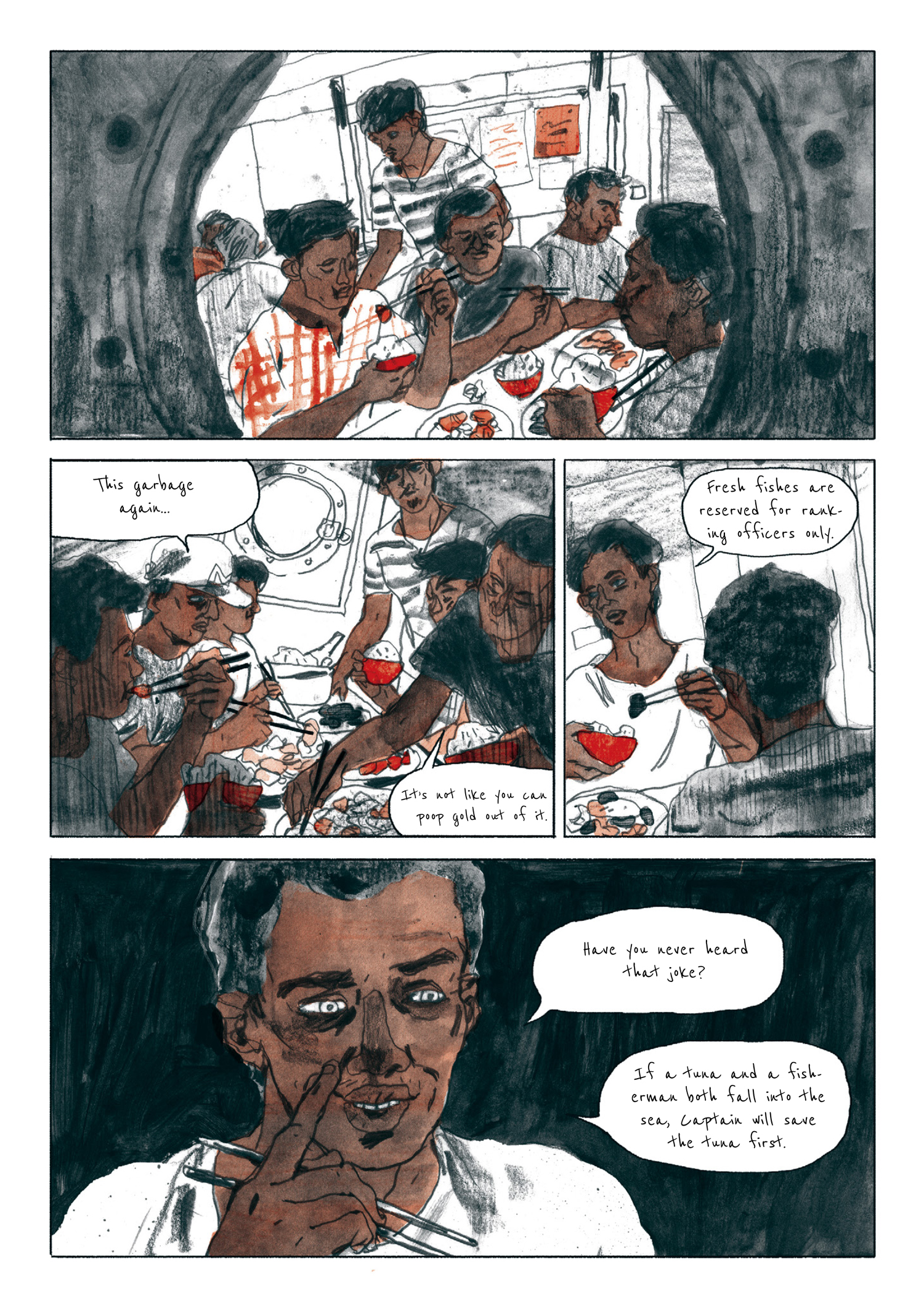

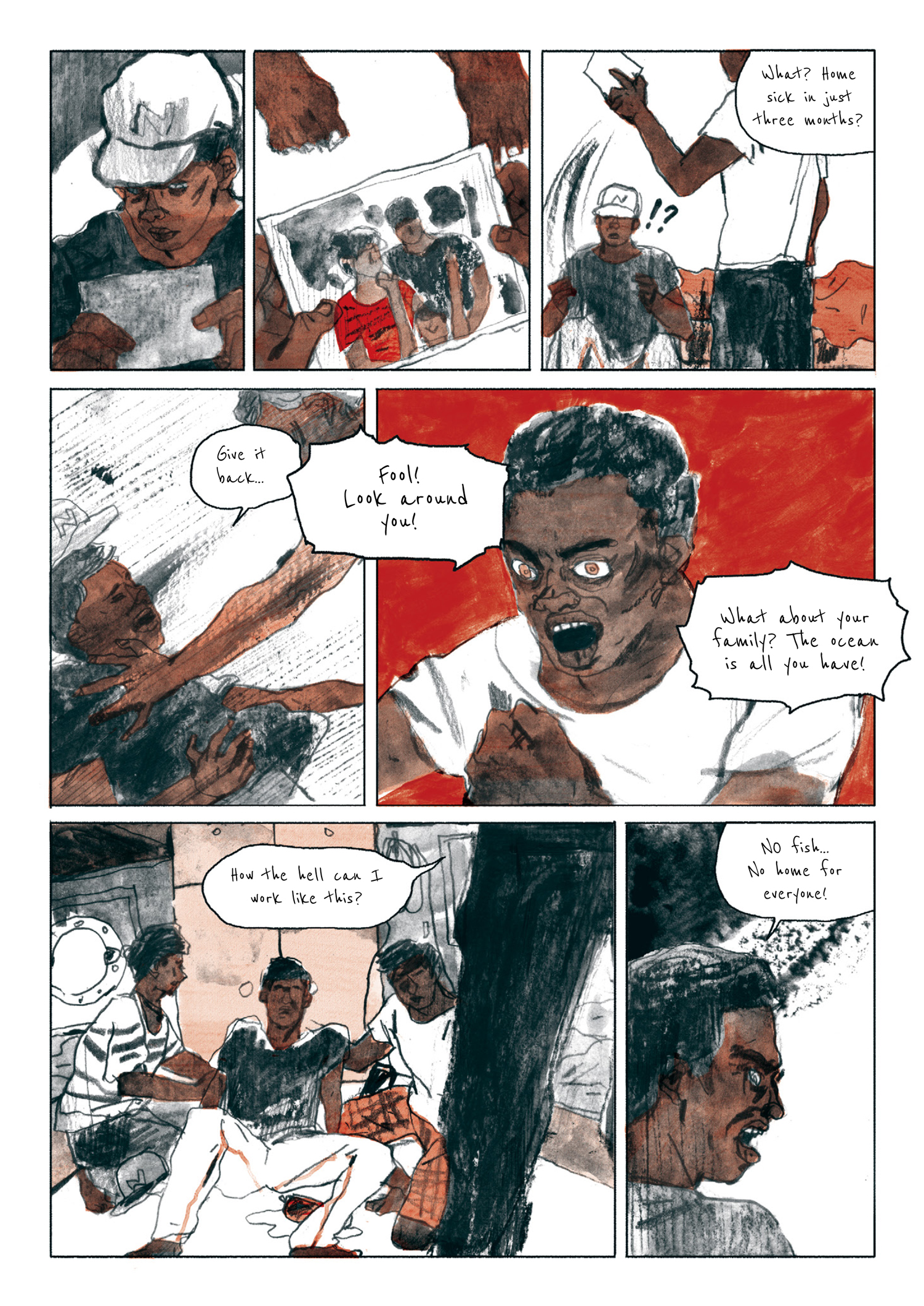
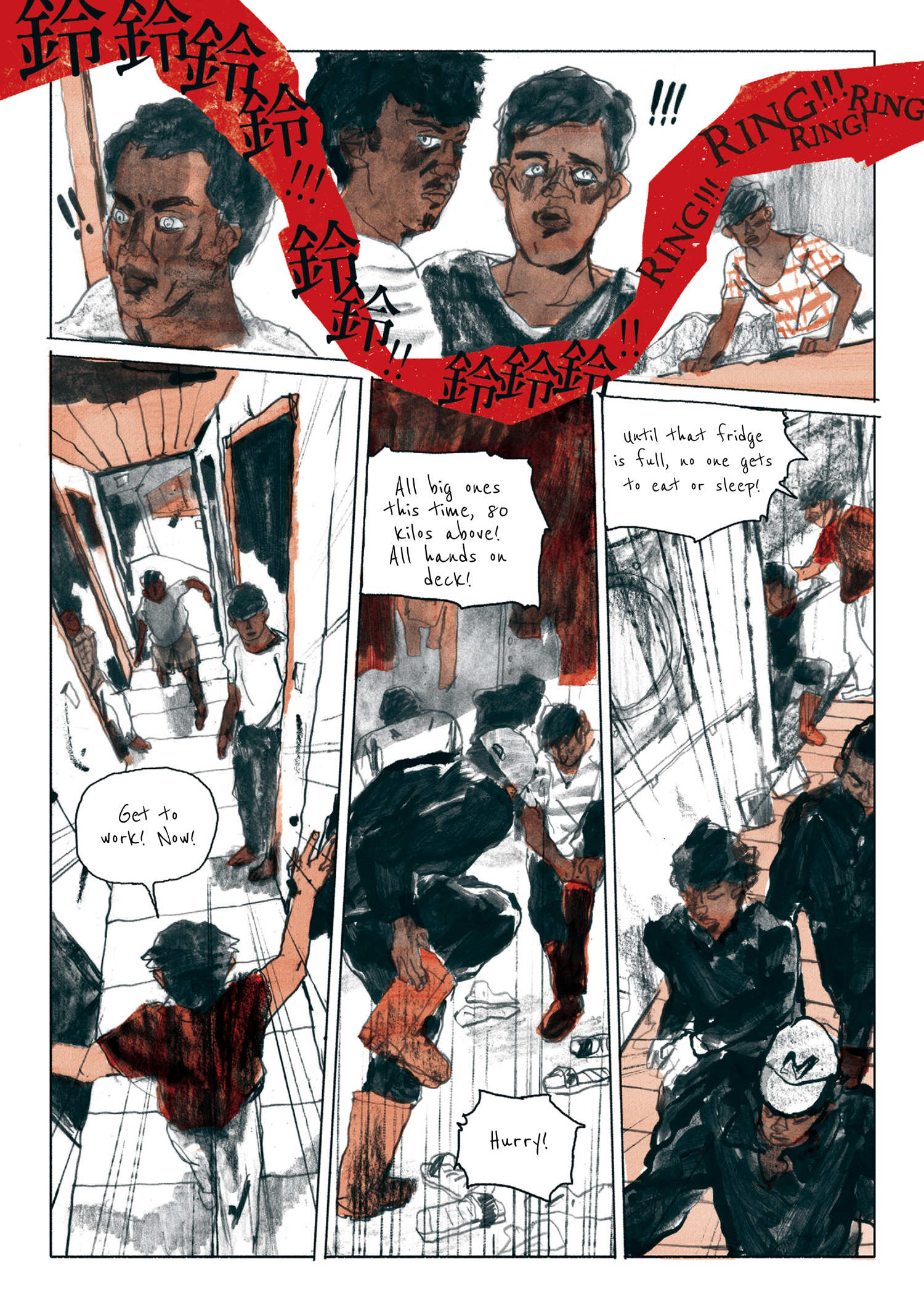
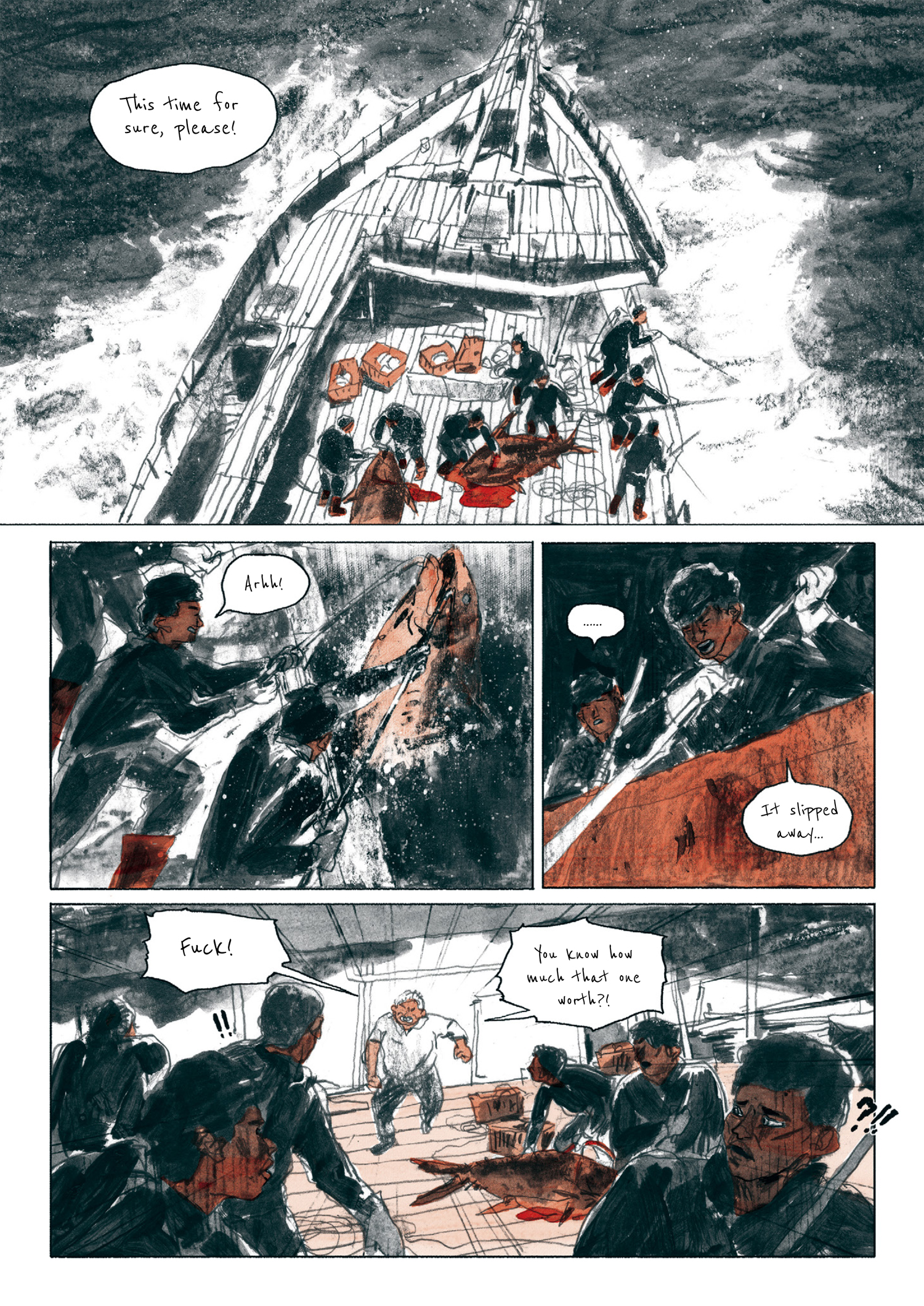

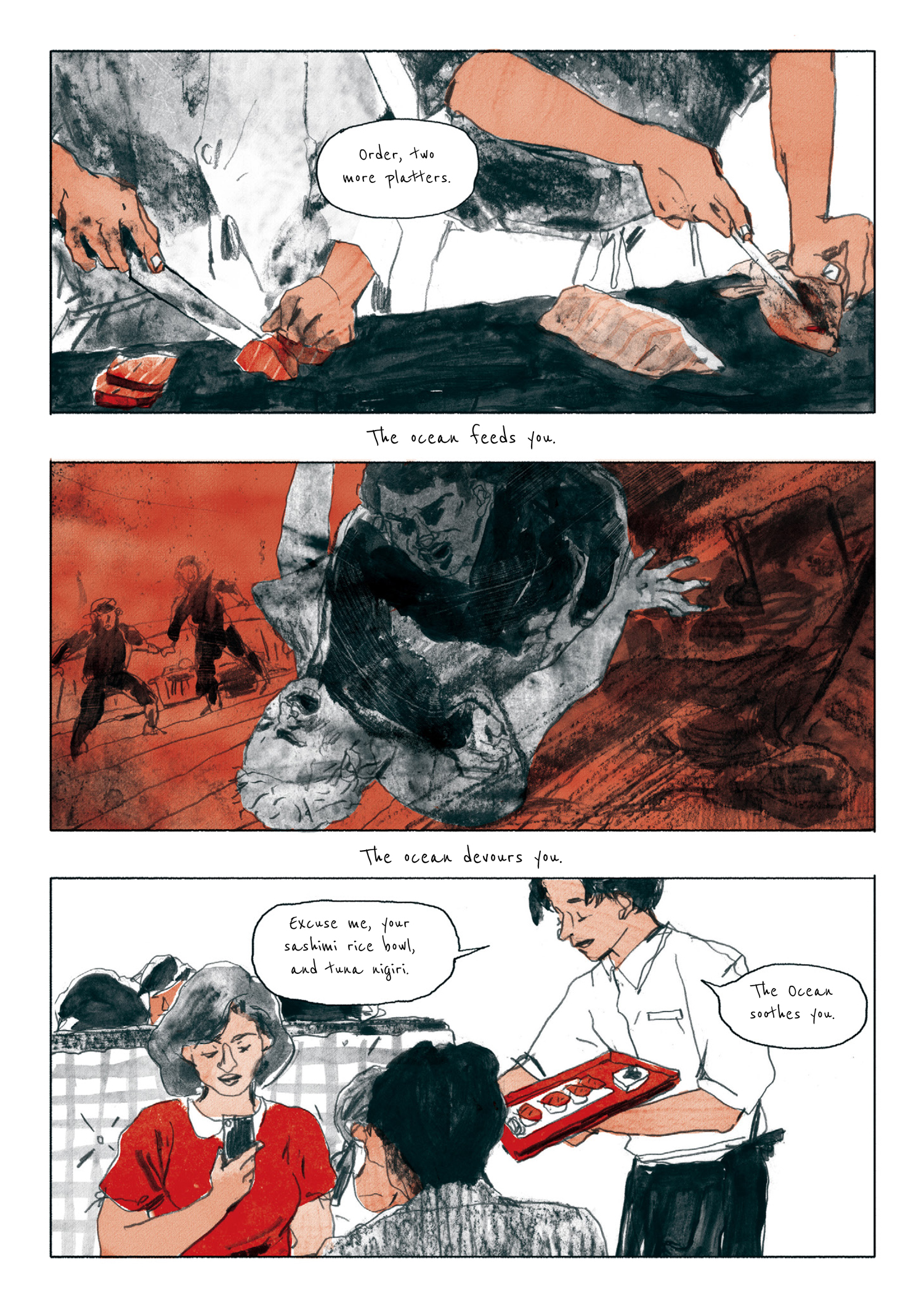

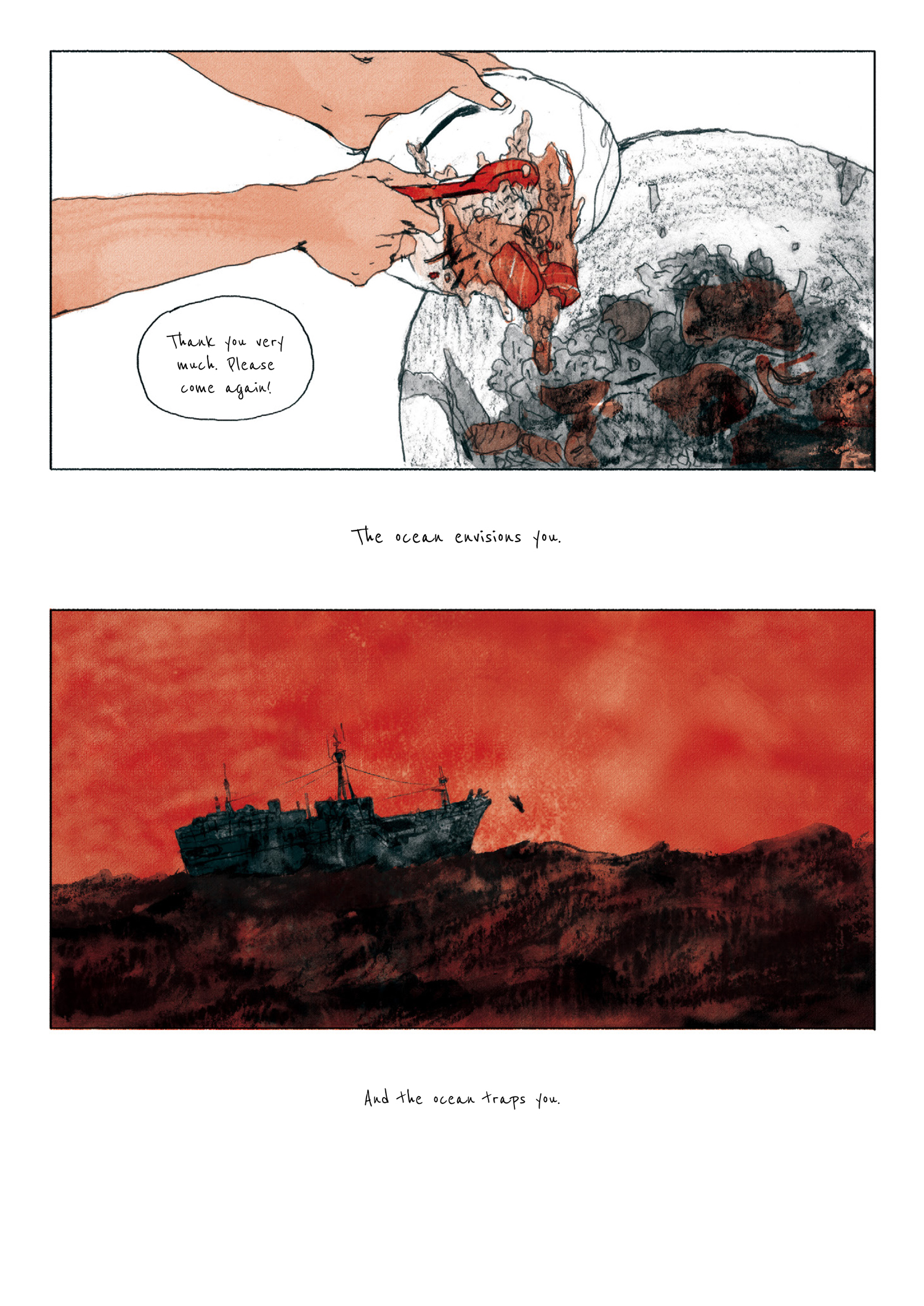
The Ocean
This work is originally published in Mandarin and English by Slowork Publishing in Monsoon Vol.2
Further reading
Bloody seafood: the fishermen driven to kill
Zhuang Shu-Qing (Taiwan International Workers’ Association)
In 2013 six Indonesian fishermen threw their Taiwanese captain and engineer overboard – and today are serving time in a Taiwanese jail.[1] In 2015 the body of an Indonesian fishermen, covered in wounds, was brought onshore – and his three children still do not know how he died. [2]
Writers and filmmakers often try to portray the sea – but most are not seafarers and rarely spend as much time living and working at sea as fishermen, skippers and sailors do, learning how spirits can rise and fall with the waves. A distant-water fishing vessel is an island unto itself, working alone in the middle of the ocean, those onboard perhaps there unwillingly and unable to return. And if all is not well aboard that vessel, tragedy could strike at any time.
Reports[3] say Taiwan is internationally known for its fishing industry, which is worth 40 billion NT and boasts 1,600 distant-water fishing vessels, along with the world’s largest catch of the Pacific saury, third-largest catch of squid and fourth-largest catch of tuna. But behind that success story lies a web of tangled interests. Millionaire boat owners and the seafood companies sit at the center, watching cash flow in to their bank accounts – but only through the hard labor of those at sea.
With the exception of skippers and engineers, Taiwanese distant-water fishing vessels are almost entirely crewed by workers from South-East Asia. They spend several months, perhaps a year, working at sea on crews of different nationalities with no shared language or culture. Rank and discipline are strictly enforced and orders must be followed immediately. Perhaps it is the nature of the sea that has created such a harsh working environment.
A Taiwanese captain makes 60,000 to 80,000 a month, has a two to four year contract with the boat owner, and makes bonuses according to catch size. For the captain, the more fish the better – the owner is happier and bonuses are bigger, you enjoy a brief reunion with wife and children at home, then head out to sea again. If the catch is disappointing, you might not get the chance of another trip. So you need to come back with a full hold each time.
An Indonesian fisherman will earn US$250 a month[4], from which an employment agency will deduct its monthly fee. The majority of these fishermen choose this work for the money: there is no local work available, they can’t enough to support their families, an onshore job in Taiwan requires a huge up-front agency fee – and so fishing work, which requires no qualifications and less money up-front, becomes the only “choice”. What they don’t know – as I was told by S, a fisherman – is that salaries go unpaid, there are only two hours of rest a day, violence is common and they will be physically and emotionally exhausted.
Foreign fishermen form the backbone of the industry’s labor force, but they also have the least bargaining power. They arrive on board by the route described above and get minimal wages – but if they don’t like it there are plenty of others waiting to take their place. The captain reigns supreme over his vessel and, under pressure to fill the hold, will work the crew non-stop. It could take twenty hours to haul a net in, but nobody will dare rest while under orders to work. Intense physical labor, constant stress, tense relations with the rest of the crew – under these circumstances the fishermen are little more than bait, consumed for the sake of the catch.
I remember seeing a captain’s family wailing as they tried to attack the Indonesian fisherman who killed him. I remember a fisherman telling me how he’d washed the corpse of a fellow villager killed on a fishing vessel. Remember that these are not isolated stories. Remember, as you enjoy your fish, where it came from. It’s time we saw what is happening and made some changes.
[1].The Tehongxing 368 fishing boat murders. [2].The Supriyanto murder [3].The Reporter special feature: Fraud, Exploitation, Bloody Fishing Grounds [4].Since January 2017 the Taiwanese government has required all foreign workers on Taiwanese distant-water fishing vessels be paid at least US$450 a month. However, in conversations with fishermen in harbor in May 2018, I learned they were being paid only US$250 a month and that only experienced fishermen who had made multiple voyages could earn US$450. The government’s rules are not being implemented.
61Chi, comics, ocean, fishing, Taiwan, Indonesia, south asia, workers, workers rights, foreign workers, fraud, exploitation, tuna, sashimi, nigiri, Tehongxing, Supriyanto




